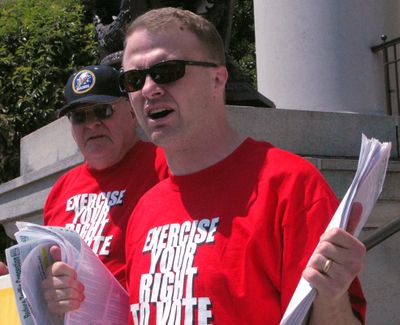Tim Eyman must sell assets to pay down his debts, bankruptcy judge rules

Tim Eyman, who gained notoriety from sponsoring a steady stream of Washington ballot initiatives, must give up his house to pay his debts, according to a new resolution approved by a bankruptcy judge on Thursday.
Eyman filed for bankruptcy in November 2018 to avoid retribution for campaign finance violations. However, the case proceeded regardless of the filing, and in April 2021, Eyman was ordered to pay $2.6 million for a civic penalty and $2.9 million for the state’s cost of investigating the case. Eyman has paid around $500,000 of his judgment and sanctions, but still owes around $5.6 million.
In a news release from the Washington State Office of Attorney General, a new court ruling approved Thursday orders Eyman to sell his house to Karen Williams, his ex-wife. Williams will buy the house for just over $900,000 and the proceeds will pay Eyman’s creditors.
Eyman also has been banned from controlling or directing finances of any political committee. He had previously signed an agreement that banned him from ever serving as a treasurer to any political committee. Under this new ruling, he is still able to draft and promote initiatives.
Eyman must still pay the remainder of his judgment, which will accrue interest until it is paid.
The news release said Eyman is a repeat violator of campaign finance laws, and was caught intentionally hiding over $700,000 in campaign contributions that were found in his personal bank account. He was also found to be part of a $308,185 kickback scheme, and that his attempts to discount court orders created costly delays for the state.